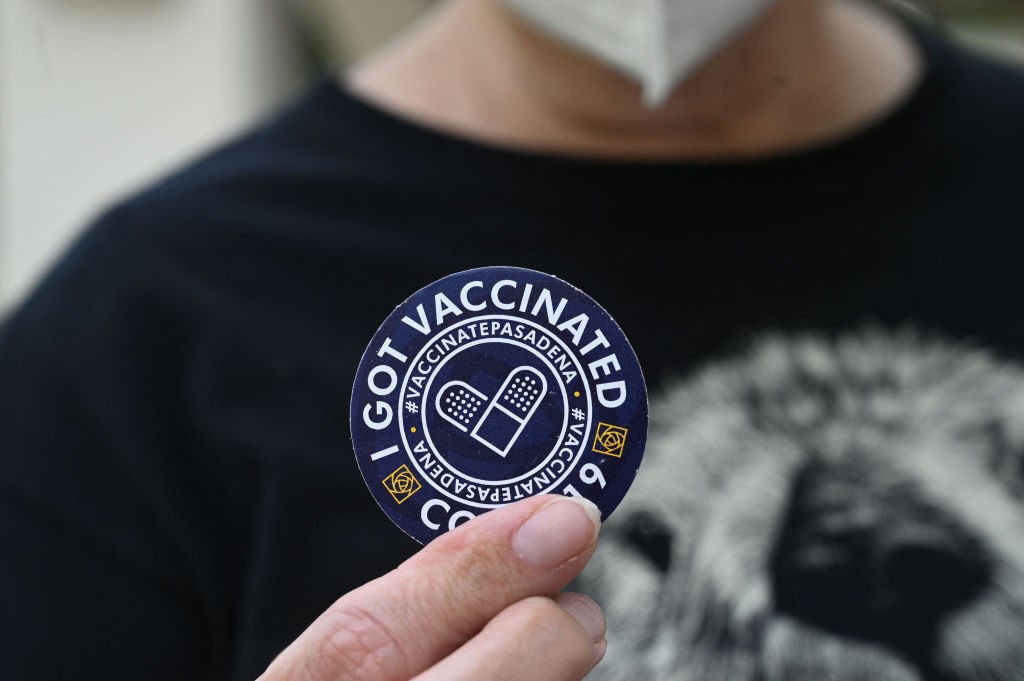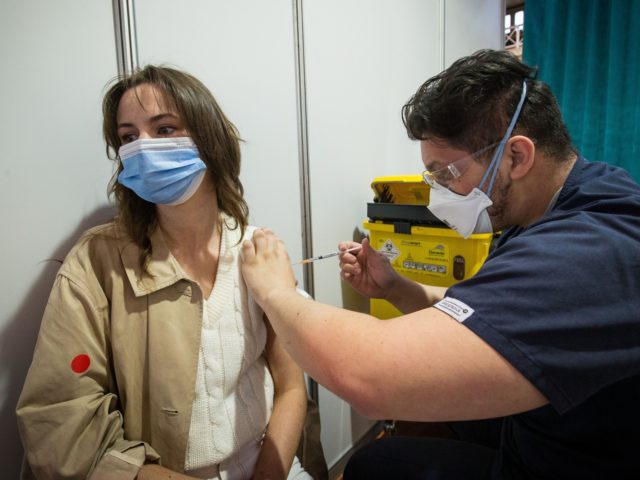Six months after the coronavirus vaccines were widely distributed in the United States, the National Institutes of Health (NIH) has called for a $1.67 million study on how the shots affect women’s menstrual cycles.
Since early 2021, women have reported strange side effects after receiving their first two doses of the coronavirus vaccines, though those reports have been largely anecdotal. Fearing an increase in vaccine hesitancy among women, the NIH said in an announcement last week that it will further investigate claims that the vaccines negatively affect a woman’s reproductive health:
The National Institutes of Health has awarded one-year supplemental grants totaling $1.67 million to five institutions to explore potential links between COVID-19 vaccination and menstrual changes. Some women have reported experiencing irregular or missing menstrual periods, bleeding that is heavier than usual, and other menstrual changes after receiving COVID-19 vaccines. The new awards support research to determine whether such changes may be linked to COVID-19 vaccination itself and how long the changes last. Researchers also will seek to clarify the mechanisms underlying potential vaccine-related menstrual changes.
The NIH further asserted that “temporary changes” in a woman’s menstrual cycle after vaccination could possibly stem from an immune response or just simply stress from the coronavirus pandemic:
Numerous factors can cause temporary changes in the menstrual cycle, which is regulated by complex interactions between the body’s tissues, cells and hormones. Immune responses to a COVID-19 vaccine could affect the interplay between immune cells and signals in the uterus, leading to temporary changes in the menstrual cycle. Other factors that may cause menstrual changes include pandemic-related stress, lifestyle changes related to the pandemic, and infection with SARS-CoV-2 (the virus that causes COVID-19).
The year-long study will have up to 500,000 participants and will be conducted by researchers at Boston University, Harvard Medical School, Johns Hopkins University, Michigan State University, and Oregon Health and Science University.
The National Institute of Child Health and Human Development (NICHD) Director Diana W. Bianchi said the study will hopefully alleviate vaccine hesitancy in women. “These rigorous scientific studies will improve our understanding of the potential effects of COVID-19 vaccines on menstruation, giving people who menstruate more information about what to expect after vaccination and potentially reducing vaccine hesitancy,” she said.
Speaking with The Lilly, Bianchi said studies regarding the vaccines’ effect on women’s reproductive cycles were not conducted during early development, arguing that menstrual cycles are “not a life and death issue.”

A woman holds up a sticker after getting her third “booster” dose of Covid-19 vaccine at a clinic hosted by The Tournament of Roses in partnership with the Pasadena Public Health Department, August 19, 2021 at Tournament House in Pasadena, California.(ROBYN BECK/AFP via Getty)
“Our goal is to provide menstruating people with information, mainly as to what to expect, because I think that was the biggest issue: Nobody expected it to affect the menstrual system, because the information wasn’t being collected in the early vaccine studies,” said Bianchi.
“The [FDA] emergency use authorization was really focused on critical safety issues,” she later added. “Changes to your menstrual cycle is really not a life and death issue.”
The Centers for Disease Control and Prevention (CDC) has claimed that the vaccines do not cause infertility and currently recommends the shot for pregnant women.
“COVID-19 vaccination is recommended for everyone 12 years of age and older, including people who are trying to get pregnant now or might become pregnant in the future, as well as their partners,” the agency says.

COMMENTS
Please let us know if you're having issues with commenting.